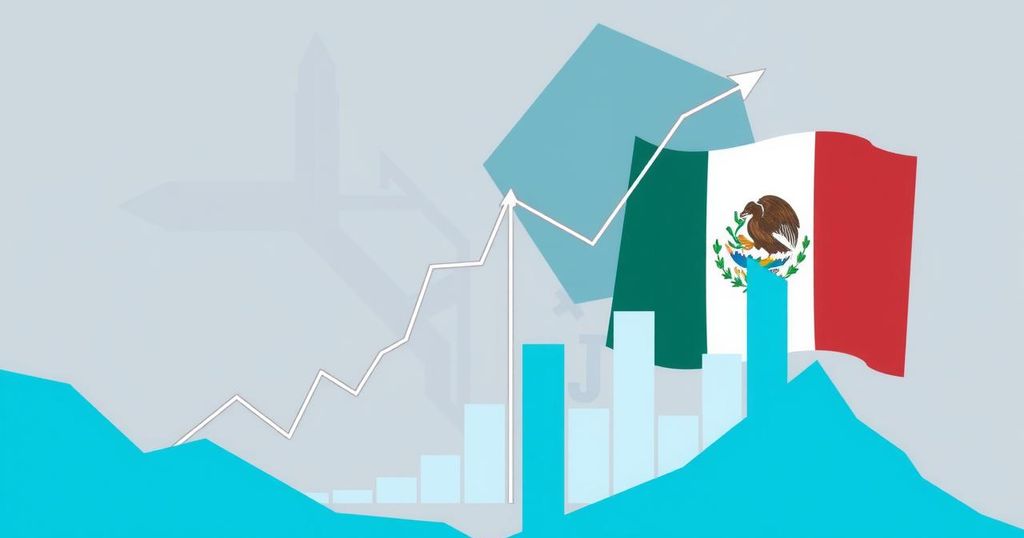economics
AMERICA, ASIA, CANADA, CARBON COUNTY, CHINA, CHRIS COONS, CNN, CONGRESS, DELAWARE, DEMOCRATS, ECONOMICS, FRY, LEHIGH VALLEY, MEXICO, NATIONAL SECURITY, NORTH AMERICA, PHILIPPINES, REPUBLICAN, ROBERT FRY, ROBERT FRY ECONOMICS LLC, RYAN MACKENZIE, TRUMP ADMINISTRATION, U. S, UNITED STATES, US ELECTIONS
Marcus Li
0 Comments
Economic Implications of Trump’s Tariffs on Trade Partners
Delaware economist Robert Fry predicts that President Trump’s tariffs on Canada and Mexico could result in a recession in the United States. This follows Trump’s recent announcement of a 25% tariff on these nations and a 10% tariff on China. Critics and economists express concerns about negative economic impacts, particularly for manufacturing and prices amid high inflation.
President Trump recently reaffirmed his strategy of imposing tariffs during his address to Congress. This includes a 25% tariff on imports from Canada and Mexico, as well as a 10% tariff on products from China, three of America’s primary trading partners. These announcements greatly affected the stock market, leading to a notable decline at the start of the week, despite subsequent rebounds in major indexes. Critics have raised concerns regarding the potential negative impact on the economy, particularly amidst already high grocery prices and inflation levels.
Senator Chris Coons expressed his apprehension during an interview, asserting that the tariffs would not contribute to making America more affordable. Conversely, Republican representative Ryan Mackenzie indicated a preference for a more nuanced approach but expressed hope for an eventual productive resolution regarding these tariffs. In his address, President Trump outlined his commitment to imposing reciprocal tariffs on all trading partners, asserting that this could yield significant revenue and employment growth in the U.S.
Rob Fry, a Delaware economist, offered a pessimistic appraisal of President Trump’s tariff plans, contending that they would fail to stimulate economic growth, particularly within the manufacturing sector. Historically, the United States has avoided high tariffs since World War II, with Fry noting that while reciprocal tariffs may seem logical, the long-standing economic case supports unilateral free trade. He warned that prolonged tariffs on Canada and Mexico could lead to a recession, as these nations are crucial trade partners for the U.S. in various sectors.
Moreover, Fry highlighted that while he can understand the rationale for tariffs on China, the tariffs on America’s neighbors pose a grave risk. Following Trump’s tariff announcement, Canadian leaders pledged to implement retaliatory measures, while Mexico’s president is prepared to respond shortly. Trump indicated that he imposed tariffs to compel neighboring countries to address the issue of fentanyl trafficking into the U.S. A brief negotiation pause on auto tariffs has been observed, but the majority of tariffs remain in effect, suggesting a challenging economic landscape ahead.
In summary, the tariffs authorized by President Trump have raised economic alarm across the political spectrum. While he envisions these measures as a pathway to greater economic prosperity, experts like Robert Fry caution that their sustained implementation could yield adverse effects, including price surges and reduced production, leading to a potential recession. The unfolding situation warrants close vigilance as domestic and international responses evolve.
In conclusion, President Trump’s tariffs on Canada, Mexico, and China have generated significant controversy and concern over their potential economic ramifications. While the administration views them as a pathway to increased revenue and job growth, experts, including economist Robert Fry, warn that prolonged tariffs may lead to adverse effects such as increased prices and a recession. The ongoing reactions from trading partners and the economic landscape will play a crucial role in shaping the outcomes of these policies.
Original Source: www.cbsnews.com




Post Comment